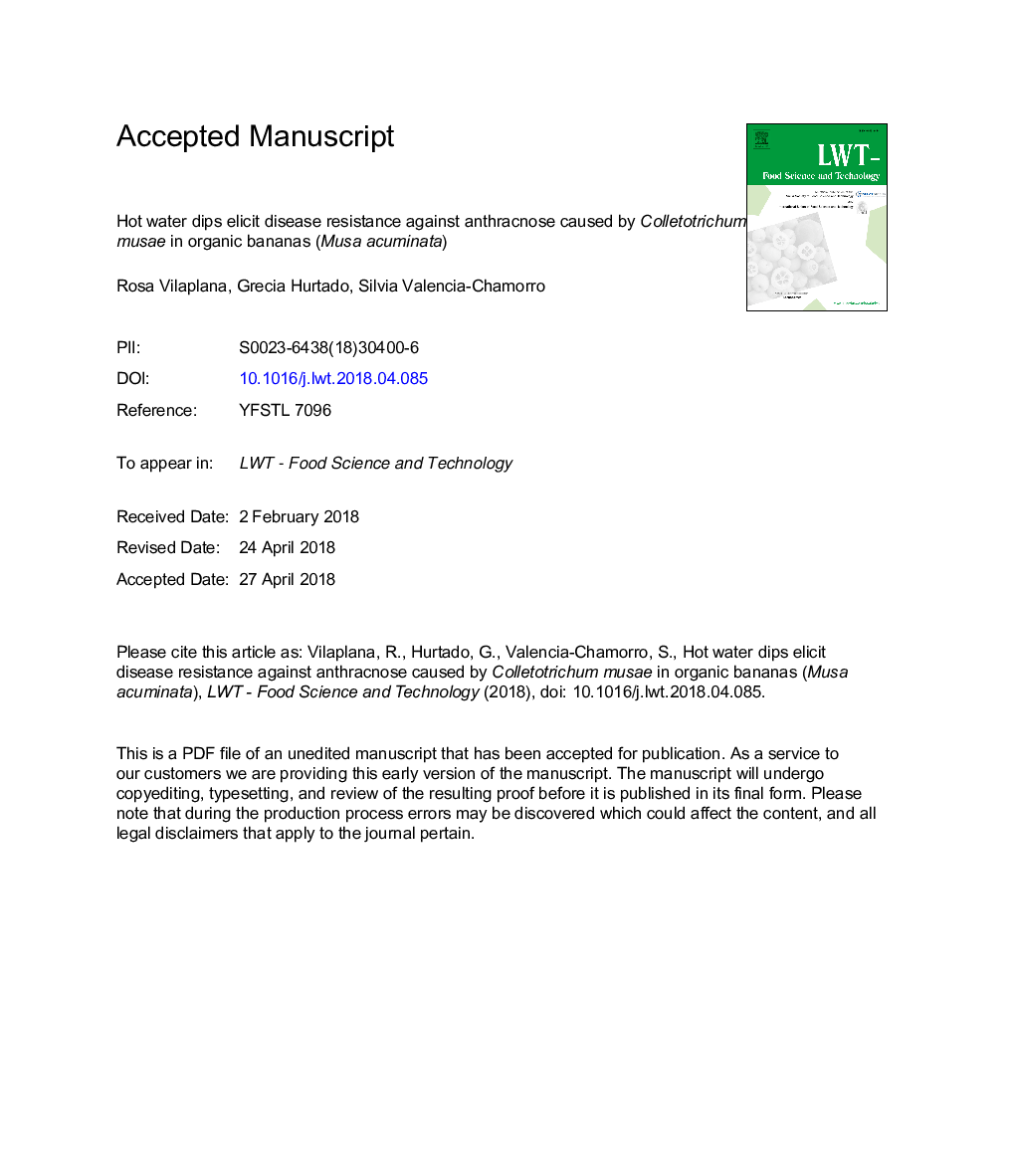| Article ID | Journal | Published Year | Pages | File Type |
|---|---|---|---|---|
| 8891072 | LWT - Food Science and Technology | 2018 | 38 Pages |
Abstract
Anthracnose of banana is an aggressive disease, difficult to control during export. Moreover, in organic banana the incidence of this pathogen is higher than in traditional crops due to the lack of use of synthetic fungicide during the pre-harvest period. The effectiveness of hot water dips has been studied in order to reduce C. musae growth and to determine their effect on postharvest and shelf-life physicochemical and sensory quality, with the goal to incorporate them into integrated pest management, and to reduce the use of chemicals. Hot water treatment at 40â¯Â°C for 20â¯min elicited a C. musae severity inhibition (49.5%) significantly higher (pâ¯<â¯0.05) than with other hot water dips. Organic bananas dipped at 40â¯Â°C for 20â¯min had lower (pâ¯<â¯0.05) weight, green color, and firmness loss than with other hot water treatments. Global appearance and flavor, were better (pâ¯<â¯0.05) scored in fruit treated with a 40â¯Â°C for 20â¯min than in non-treated fruit during cold storage and shelf-life period. These results suggest that hot water dip may be potentially useful for controlling anthracnose in organic bananas during the postharvest period without negative effect on their physicochemical and sensory quality.
Related Topics
Life Sciences
Agricultural and Biological Sciences
Food Science
Authors
Rosa Vilaplana, Grecia Hurtado, Silvia Valencia-Chamorro,
